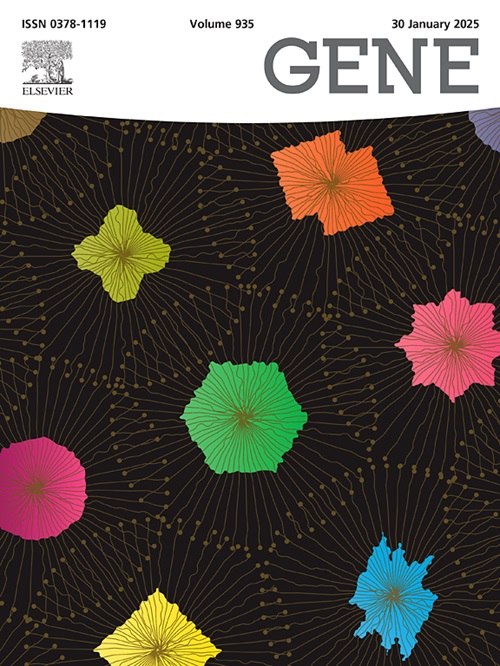Epigenetics of concussion: A systematic review
IF 2.4
3区 生物学
Q2 GENETICS & HEREDITY
引用次数: 0
Abstract
Background
Concussion is the most common neurological disorder affecting millions of people globally each year. Identifying epigenetic mechanisms influencing concussion incidence, severity and recovery could provide diagnostic and prognostic insight into this injury.
Objectives
This systematic review aims to identify the epigenetic mechanisms underpinning concussion.
Methods
Seven electronic databases; PubMed, MEDLINE, CINAHL, Cochrane library, SPORTDiscus, Scopus and Web of Science were searched for studies that investigated the epigenetic mechanisms of concussion and its underlying neuropathology.
Results
Based on inclusion and exclusion criteria, 772 titles were independently analysed by two of the authors to a final list of 28 studies that totaled 3042 participants. We observed separate associations between sncRNAs, methylation, histone modification and concussion. Overall, 204 small non-coding RNAs were significantly dysregulated between concussed participants and controls or between concussion participants with no post-concussive symptoms and those with post-concussive symptoms. From these, 37 were reported in more than one study and 23 of these were expressed in a consistent direction with at least one further study. Ingenuity pathway analysis identified 10 miRNAs known to regulate 15 genes associated with human neurological pathologies. Two studies found significant changes in global methylation in concussed participants and one study found a decrease in H3K27Me3 in the context of DNA damage and concussion.
Conclusions
The review findings suggest that epigenetic mechanisms may play an important role in the pathophysiological mechanisms that could influence outcome, recovery, and potential long-term consequences of concussion for individuals.
脑震荡的表观遗传学:系统回顾
背景脑震荡是最常见的神经系统疾病,每年影响全球数百万人。确定影响脑震荡发病率、严重程度和恢复的表观遗传学机制可以为这种损伤的诊断和预后提供洞察力。方法在 PubMed、MEDLINE、CINAHL、Cochrane library、SPORTDiscus、Scopus 和 Web of Science 七个电子数据库中检索了调查脑震荡表观遗传学机制及其潜在神经病理学的研究。我们观察到 sncRNAs、甲基化、组蛋白修饰和脑震荡之间存在不同的关联。总体而言,有 204 种小非编码 RNA 在脑震荡参与者与对照组之间,或在无脑震荡后症状的脑震荡参与者与有脑震荡后症状的脑震荡参与者之间出现了明显的失调。其中,37 个在不止一项研究中被报道,23 个在至少一项进一步研究中表达方向一致。Ingenuity pathway 分析确定了 10 个 miRNA,这些 miRNA 可调控 15 个与人类神经系统疾病相关的基因。两项研究发现,脑震荡参与者的全局甲基化发生了重大变化,一项研究发现,在 DNA 损伤和脑震荡的背景下,H3K27Me3 发生了下降。结论综述结果表明,表观遗传机制可能在病理生理机制中发挥重要作用,这些机制可能会影响脑震荡对个人造成的结果、恢复和潜在的长期后果。
本文章由计算机程序翻译,如有差异,请以英文原文为准。
求助全文
约1分钟内获得全文
求助全文
来源期刊

Gene
生物-遗传学
CiteScore
6.10
自引率
2.90%
发文量
718
审稿时长
42 days
期刊介绍:
Gene publishes papers that focus on the regulation, expression, function and evolution of genes in all biological contexts, including all prokaryotic and eukaryotic organisms, as well as viruses.
 求助内容:
求助内容: 应助结果提醒方式:
应助结果提醒方式:


